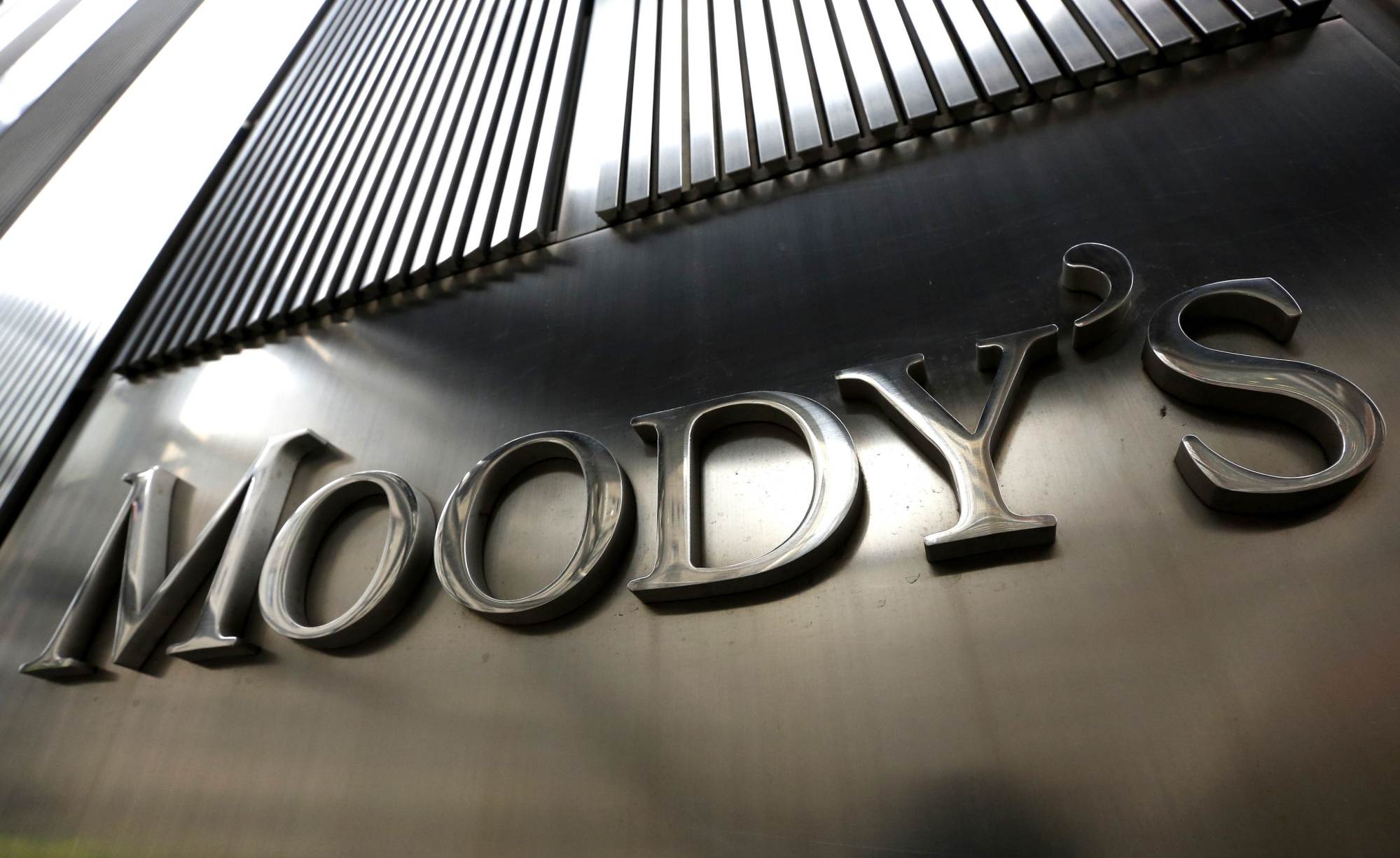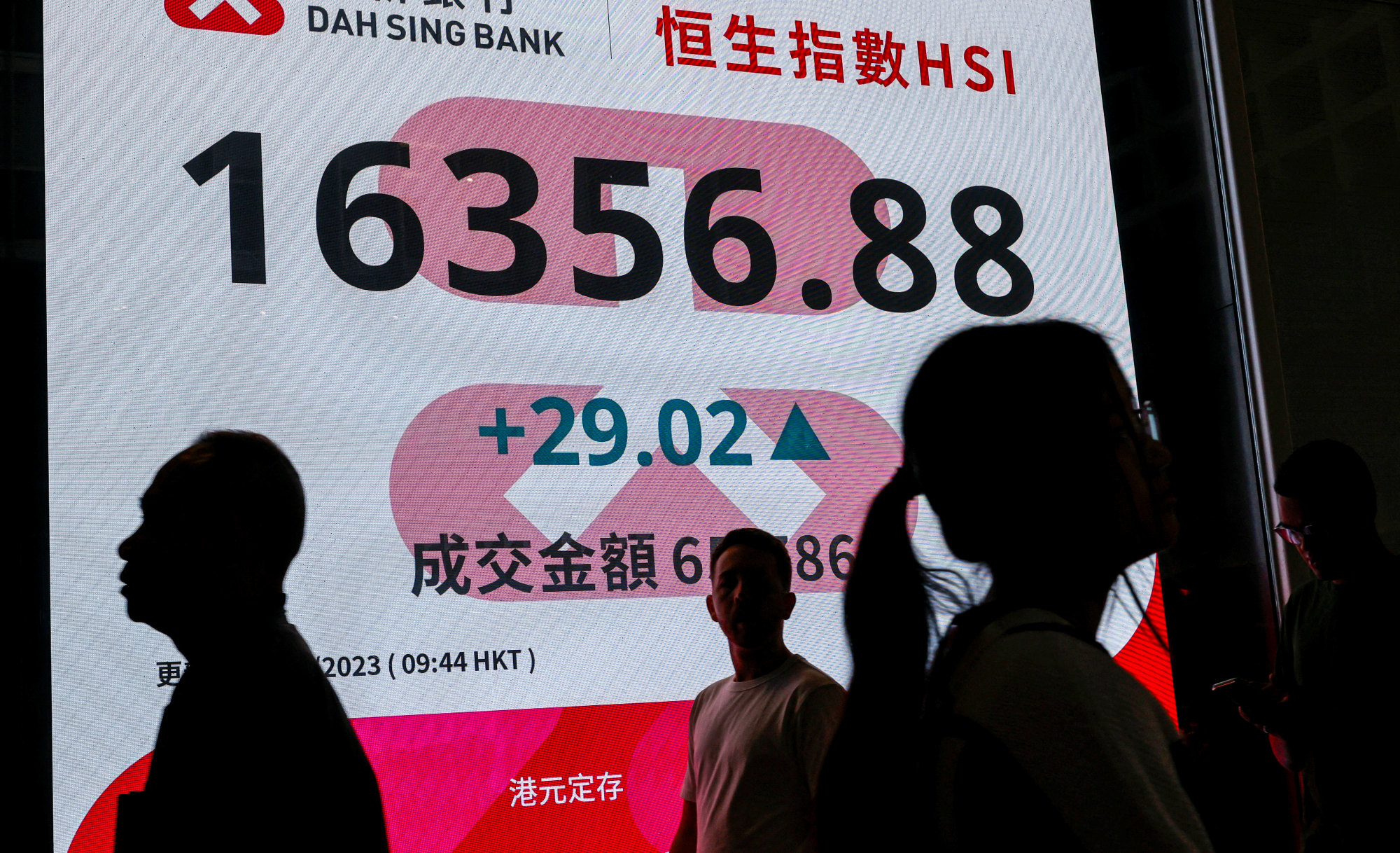
Hong Kong hits back at ‘unfounded comments’ after ratings agency Moody’s downgrades credit outlook to negative over closer ties with mainland China
- Government says its disagrees with changes based on Hong Kong’s tight ties with the mainland and that national security law put an end to 2019 chaos
- Downgrade might not deter investors from coming to Hong Kong but it serves as sign world has been watching city’s developments, analysts say
In a statement on Wednesday evening, the government said it disagreed with the changes based on Hong Kong’s tight ties with the mainland, and that the agency had made unfounded comments about the city’s autonomy decreasing.
“Contrary to what Moody’s has suggested in its assessment, the implementation of the [national security law] has put an end to the chaotic situation and serious violence, which occurred between June 2019 and early 2020,” the government said.

It said the legislation, which bans acts of secession, subversion, terrorism and collusion with foreign or external forces, had restored stability and increased confidence in Hong Kong, allowing the city to resume its normal operations and return to the path of development.
“Moody’s also made unfounded comments on the high degree of autonomy of the Hong Kong Special Administrative Region, our political and judicial institutions, the implementation of the national security law and changes to the electoral system,” it said.
Citing an International Monetary Fund report released in May, the government said that it reaffirmed once again the city’s status as a major international financial centre, adding that “the strengths of Hong Kong have withstood different tests over time, and will continue to do so in the future”.
China ‘disappointed’ at Moody’s downgrade of sovereign bonds outlook to negative
Analysts said there could be political considerations in the rating change and the downgrade might not deter investors, especially mainland businesses, from coming to Hong Kong, but it served as a sign the world had been watching the city’s developments closely.
The move on Wednesday followed a similar change by Moody’s on the outlook for Chinese sovereign bonds, also from stable to negative, on Tuesday.
The US-based agency attributed its decision to downgrade Hong Kong’s credit profile to negative – the second time since 2019 – to institutional and political changes in the city.
“Following signs of reduced autonomy of Hong Kong’s political and judiciary institutions, notably with the imposition of a national security law in 2020 and changes to Hong Kong’s electoral system, Moody’s expects further erosion of [Hong Kong’s] autonomy of political, institutional and economic decisions to continue incrementally,” the agency said.
Hong Kong leader points to economic strides as finance chief warns of deficit
The company said Hong Kong following in the mainland’s footsteps reflected its assessment of the “tight” political, institutional, economic and financial linkages between the two, which kept the ratings gap no wider than one notch.
“Weakening trend growth on the mainland will affect Hong Kong’s economy through the strong trade and investment linkages including through more slowly expanding opportunities for Hong Kong as the key regional economic and financial hub,” it said.
The agency, meanwhile, kept its Aa3 rating for Hong Kong’s long-term sovereign bonds unchanged at the fourth-highest level – high-quality investment grade and subject to very low credit risk.
It added from a longer-term perspective, despite the institutional and political changes that were likely to erode Hong Kong’s attractiveness to international companies, they were balanced by the city’s long-established and largely unchanged economic, legal, business and taxation frameworks.
Hong Kong ‘pushing for deeper ties with Middle East, China’ to bring in new capital
Moody’s said it expected Hong Kong to continue to maximise its competitive advantages as a key regional trade and financial hub, including as an economic stepping stone into the large and still thriving mainland economy.
The Ministry of Finance in Beijing also slammed Tuesday’s downgrade, calling the agency’s concerns “unnecessary”.
The agency said the drop in China’s outlook was due to “rising evidence” that the government and the public sector would provide support to financially stressed regional and local governments and state-owned enterprises, posing broad downside risks to China’s fiscal, economic and institutional strength.
The agency previously changed Hong Kong’s outlook from stable to negative in September 2019 during the anti-government protests and raised it to stable again the following year, while downgrading its credit rating one notch from Aa2 to Aa3.

Economist Simon Lee Siu-po, an honorary fellow at the Asia-Pacific Institute of Business at Chinese University, said Moody’s ratings were generous to Hong Kong given the indicators of the property and stock markets were not showing good signs and that the government was recording deficits.
“This is now a warm reminder, a signal that the world will keep monitoring. If the situation gets worse, there will be a more concrete evaluation,” he said, referring to a downgrading of the credit rating as opposed to just the outlook.
But Lee also said there were “definitely” political considerations behind the outlook downgrade, adding that the ratings were not always fair.
“In the US, there are a lot of interactions between politics and the economy. I’m not surprised,” he said. “This is how the game is played. The US election might have a role in this, too.”
Market indicators show Hong Kong still ‘brilliant’ global financial centre: John Lee
For businesses in Hong Kong, he said, the downgraded outlook would mean higher operating and financing costs as interest rates might be raised when they borrowed.
Terence Chong Tai-leung, executive director of Chinese University’s Lau Chor Tak Institute of Global Economics and Finance, said other than Hong Kong and the mainland, the pandemic had worsened the fiscal situation of governments globally.
“Despite Hong Kong’s budget deficit, we are one of the few governments with rich reserves. The grading should only consider fiscal situations,” he said.
“Downgrading us because we are getting closer to the mainland seems unreasonable. But if it’s because we are in deficit for two years straight then that makes sense.”


